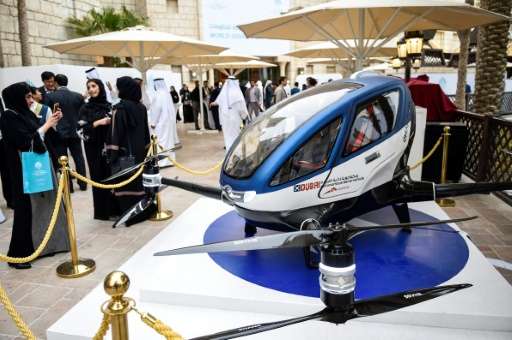Best of Last Week—Hover taxi service, vitamin D protects against colds and remote working found to be more stressful

(ScienceX)—It was a good week for technology as authorities in Dubai announced that the country aims to launch a hover-taxi service by July—the Chinese-made self-driving vehicles hold one person and will be able to carry customers to selected destinations on trips up to 30 minutes in duration. Also, a team at Disney Research demonstrated a method they have developed for wireless power transmission that safely charges devices anywhere within a room—similar to WiFi hot spot services. And officials with TEPCO reported that the 'Scorpion' robot mission inside the Fukushima reactor was aborted after the probe ran into unforeseen difficulties. It was hoped the probe would reveal why a portion of the plant was emitting record high levels of radiation.
In Earth news, an international team of scientists collaborated on a paper detailing why they believe the current planetary situation is more than just climate change—they suggest critical two-way feedback systems are missing from current models, and because of that, we have no real means for describing the ways that humans are causing changes to the planet and vice versa. Also, a team with NASA's Astrobiology Institute announced that they had discovered weird cave life that may be 50,000 years old inside of crystals in Mexico. And a team of researchers affiliated with several institutions in the U.S. described evidence gained from computer models they developed that showed that the Ventura fault could cause stronger shaking than has previously been thought.
In other news, a team of researchers at Ohio State University highlighted how international science collaboration has been growing at an astonishing rate—more than doubling from 1990 to 2015. Also, a team at Queen Mary University of London conducted a global study and found that vitamin D protects against colds and flu. And there was alarming news from a team at Binghamton University, State University of New York—they found that a food additive used in candy and gum could alter digestive cell structure and function—inhibiting small intestine cells from absorbing nutrients.
And finally, if you are someone who works from home or at some other site distant from colleagues, you may not be benefiting from it as much as you think—a report released by the United Nations International Labour Organization linked working remotely to more stress and insomnia.
© 2017 ScienceX